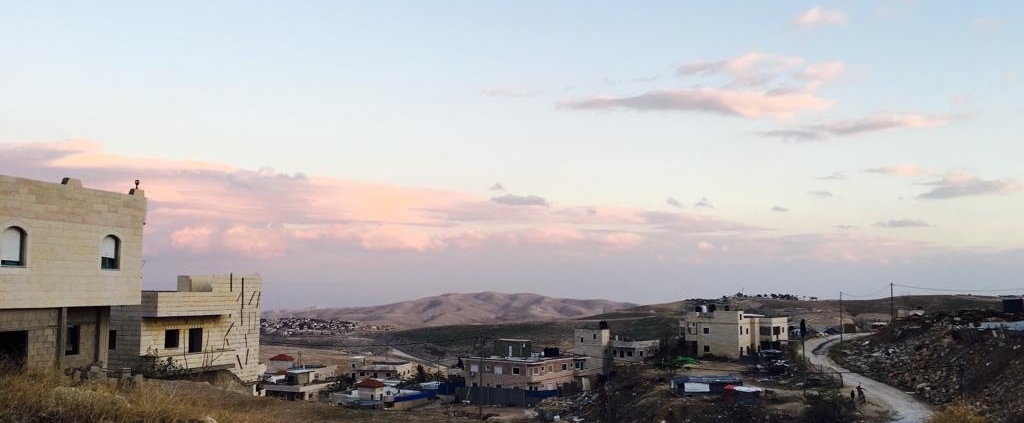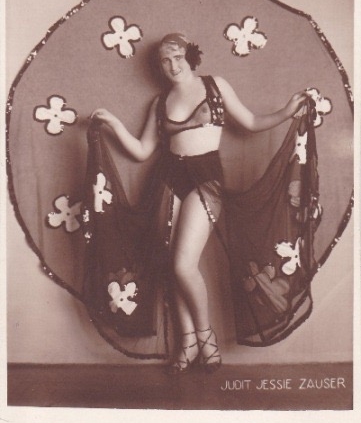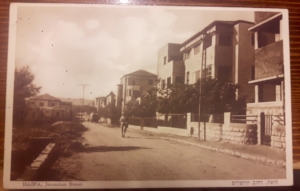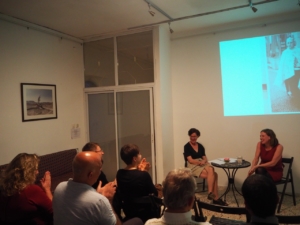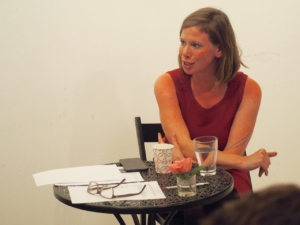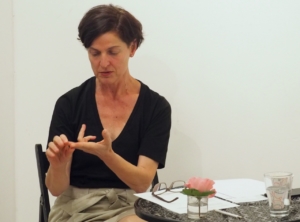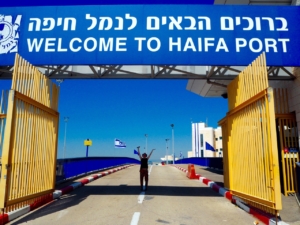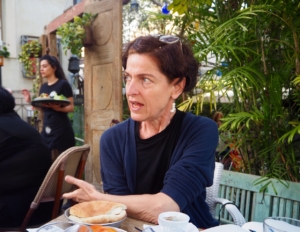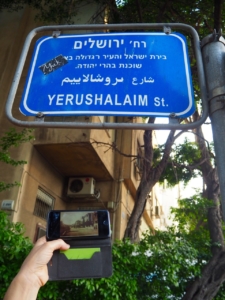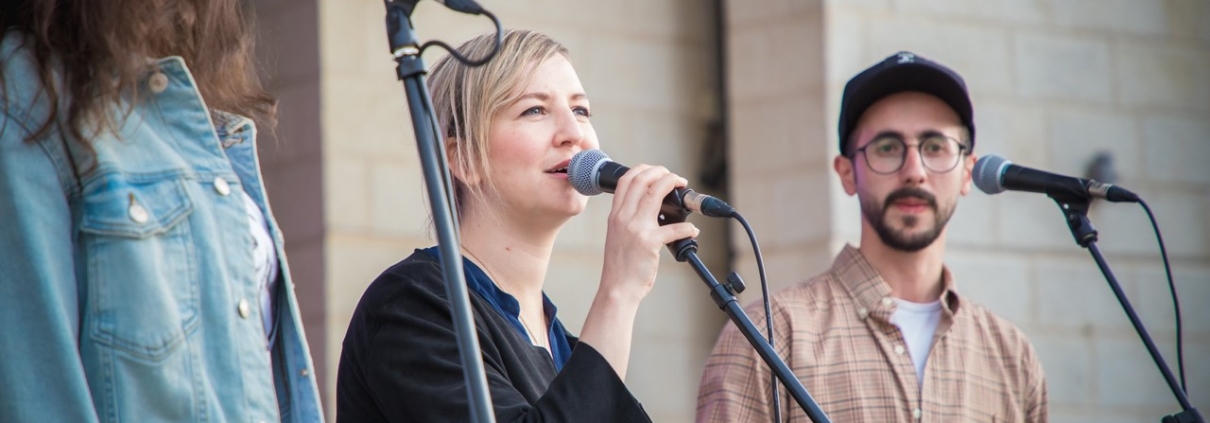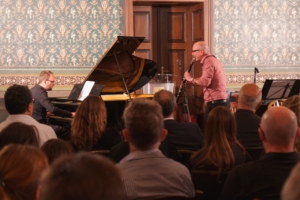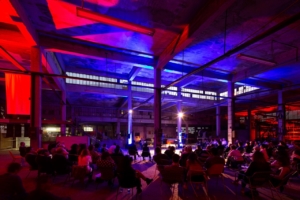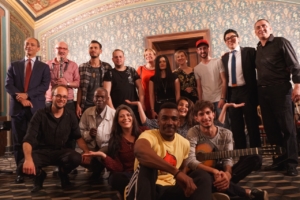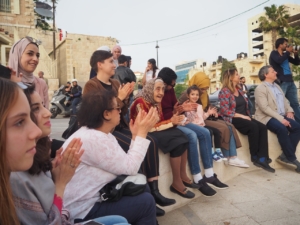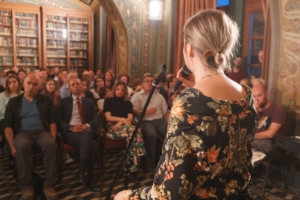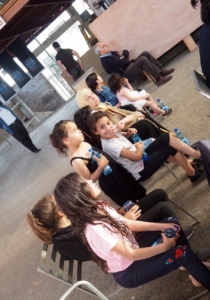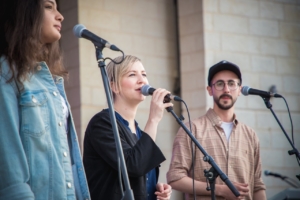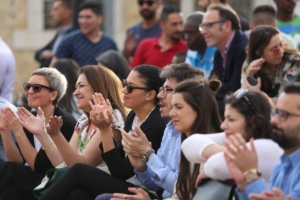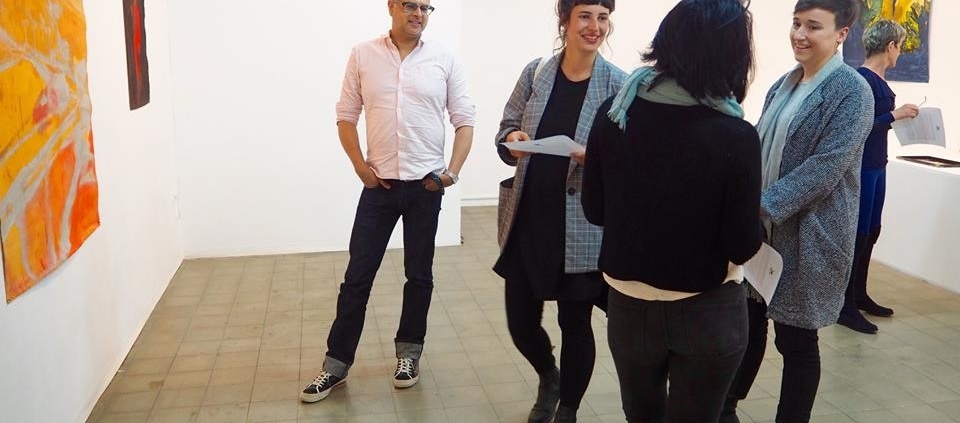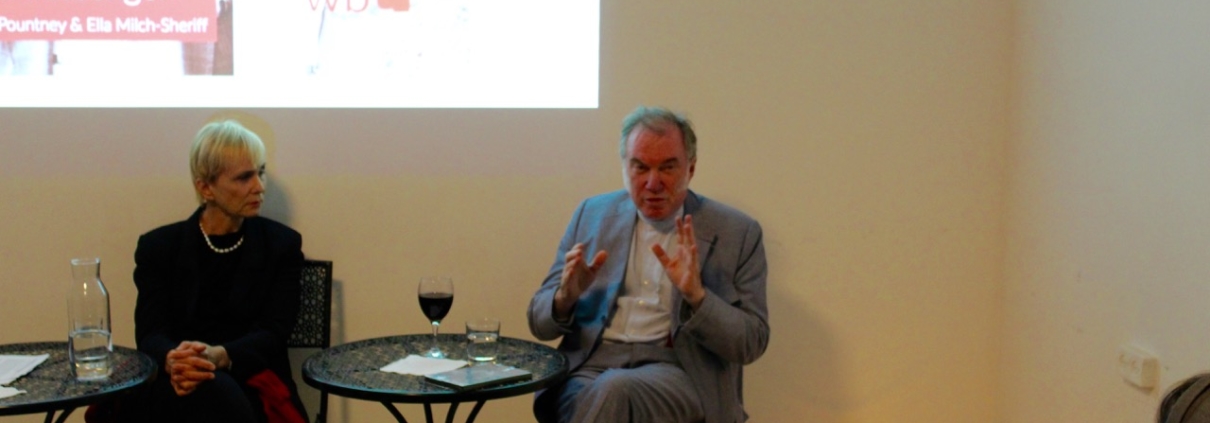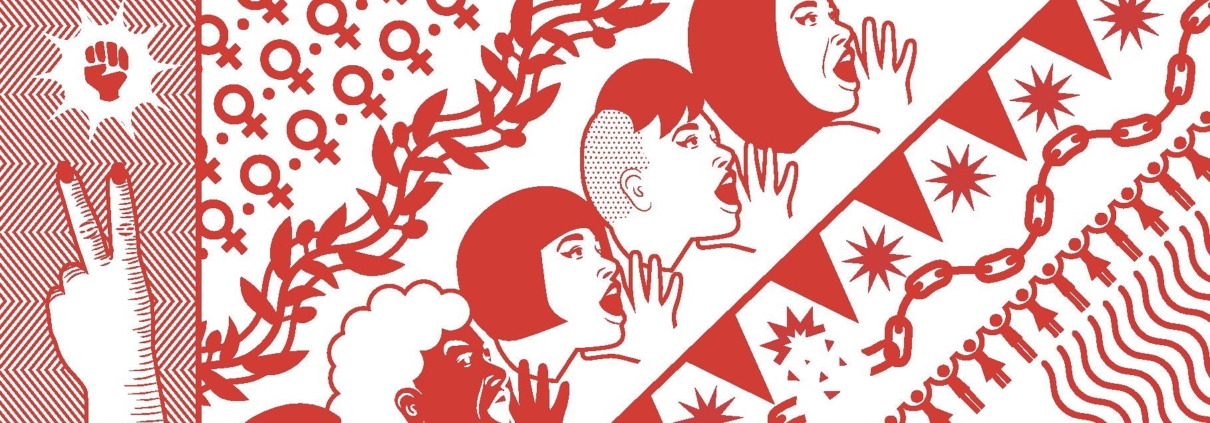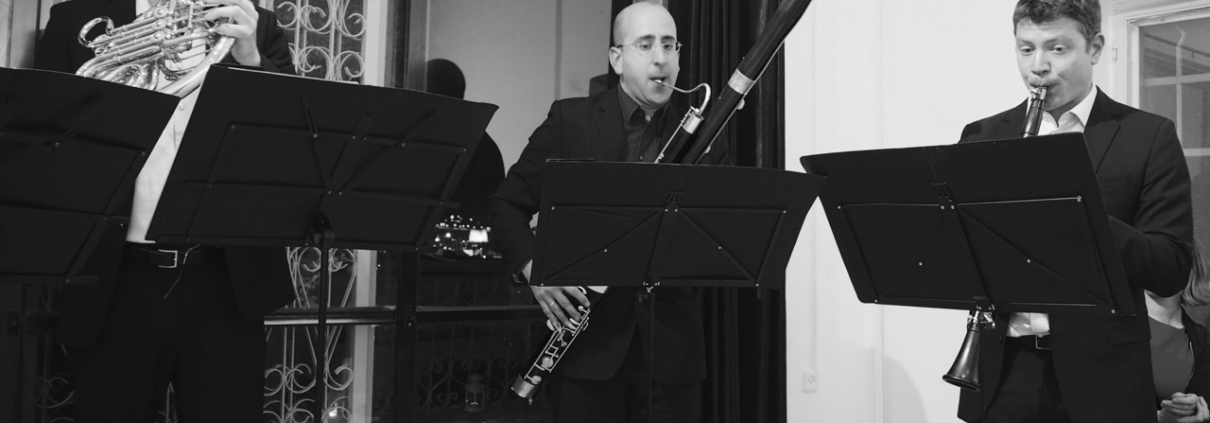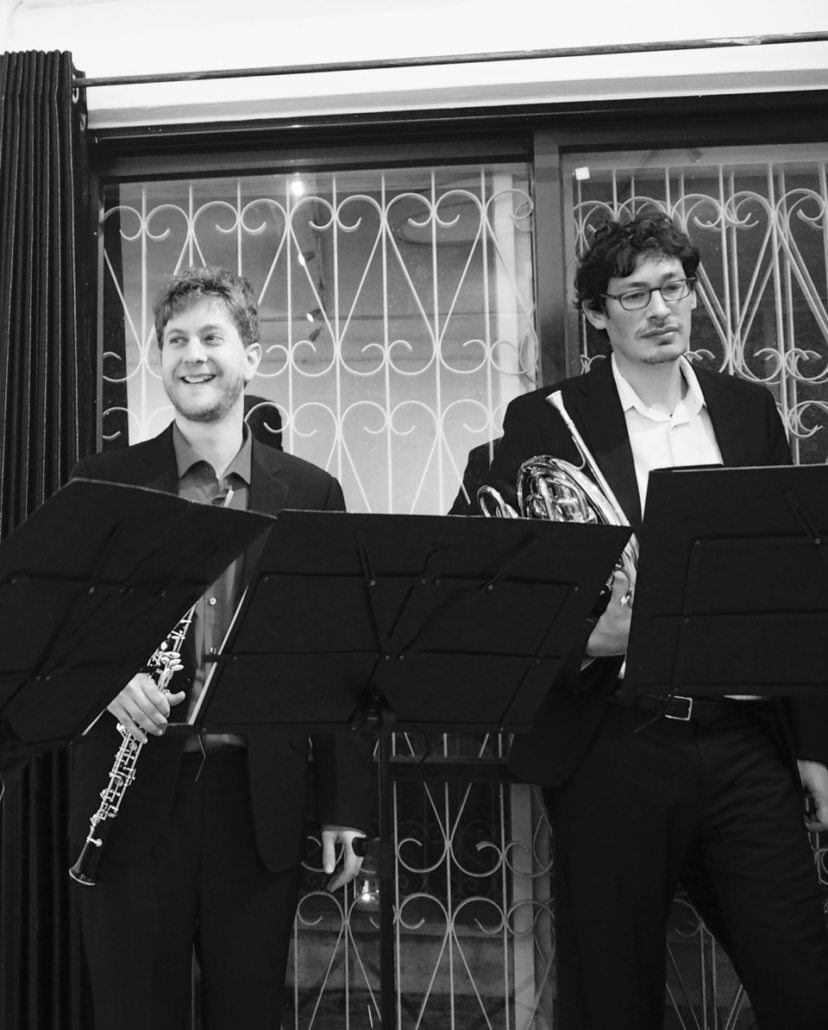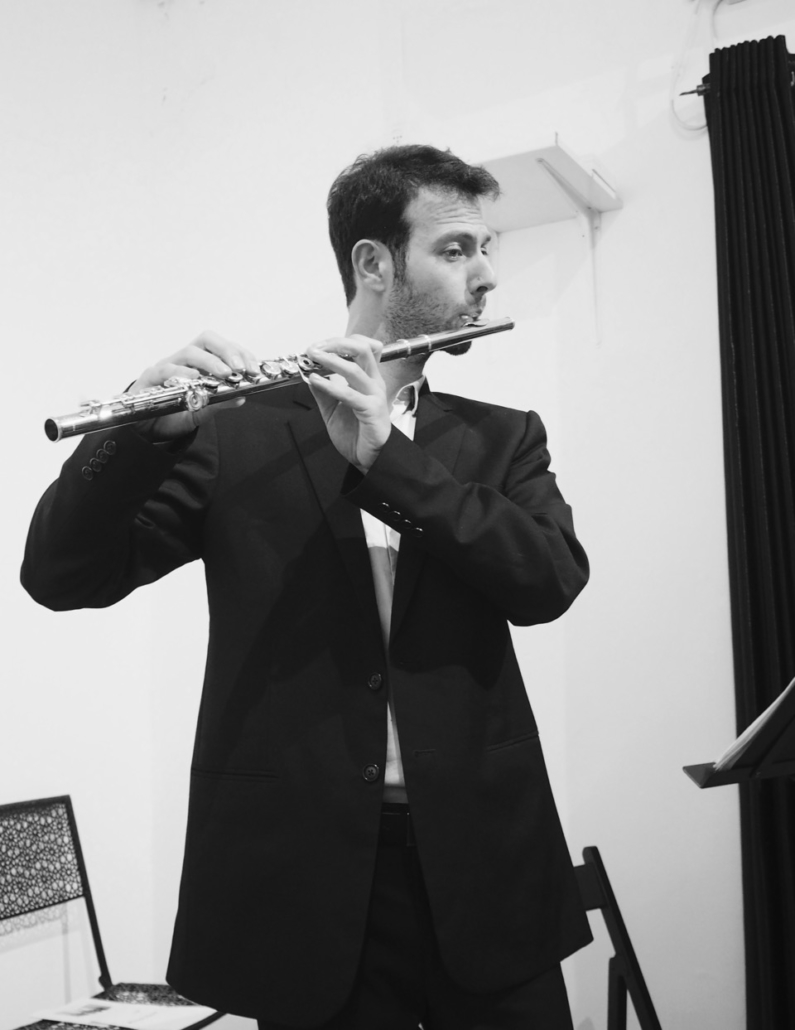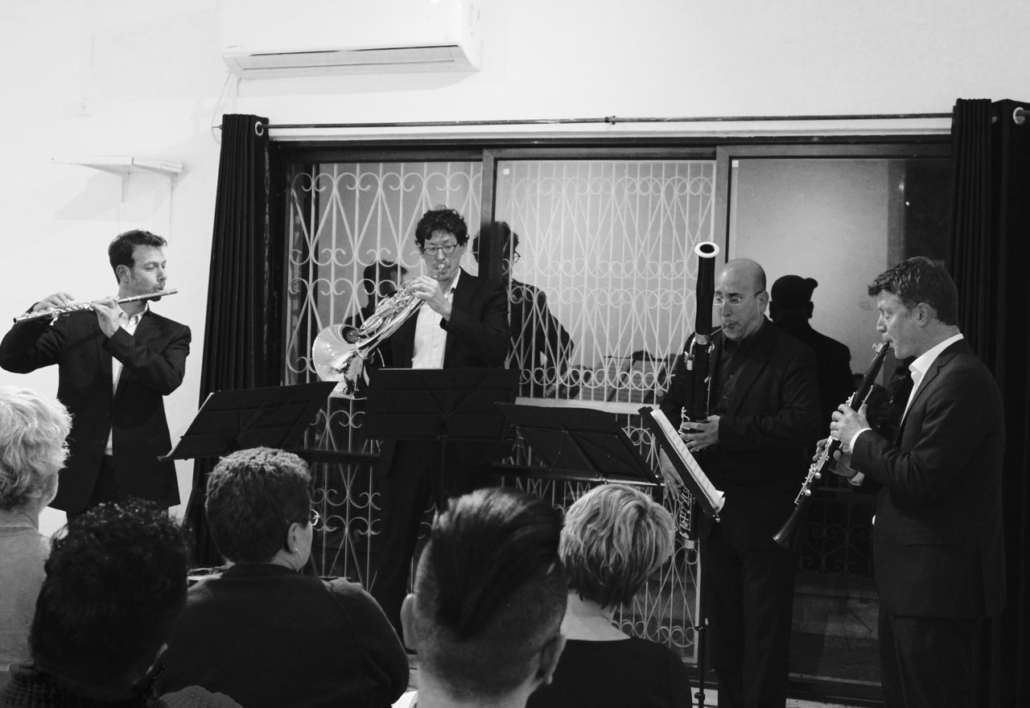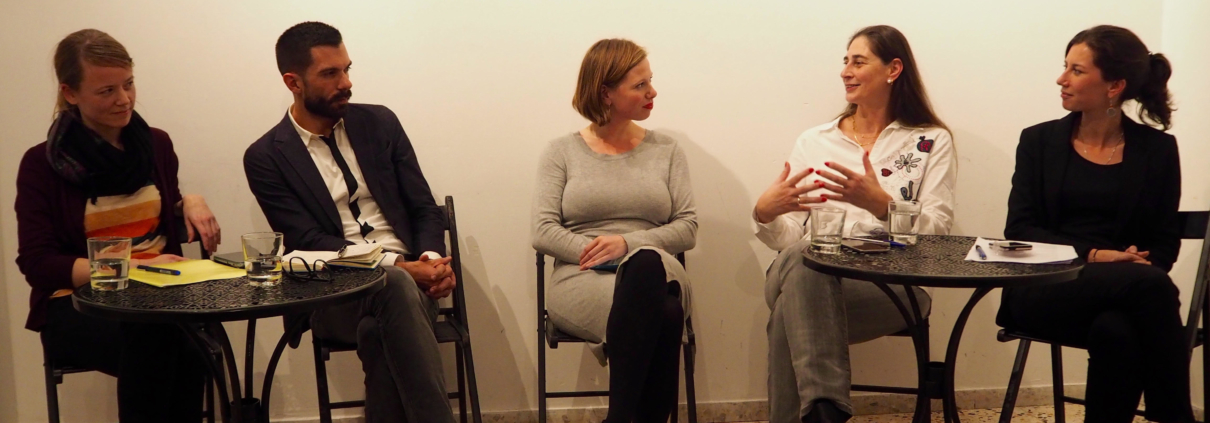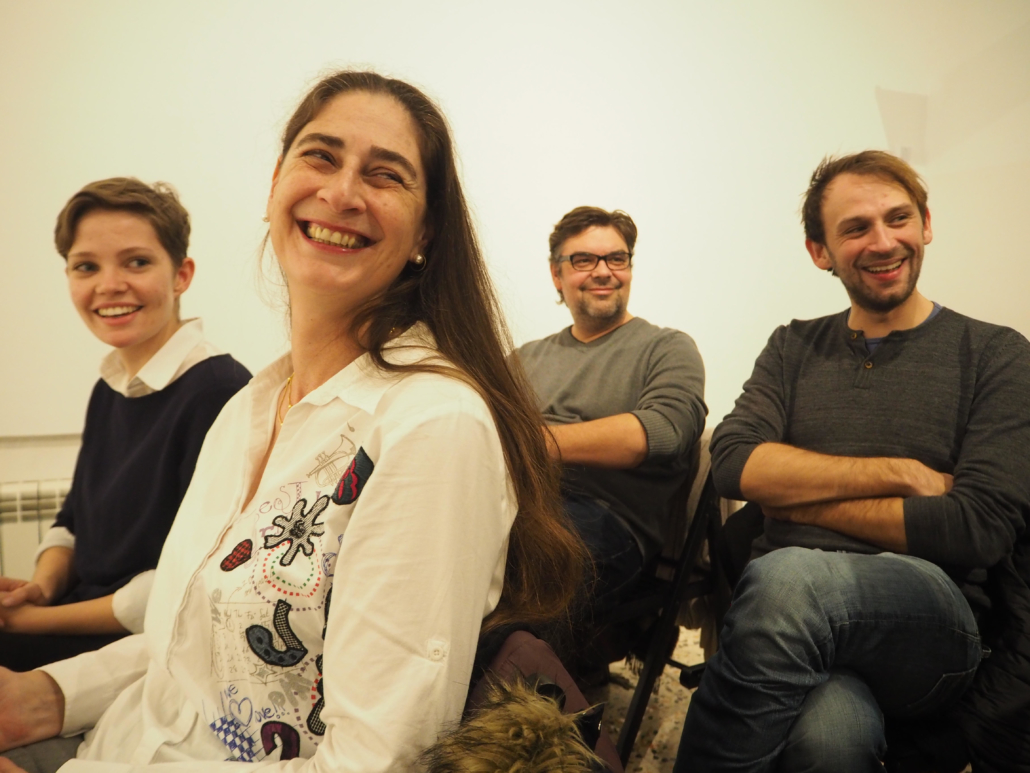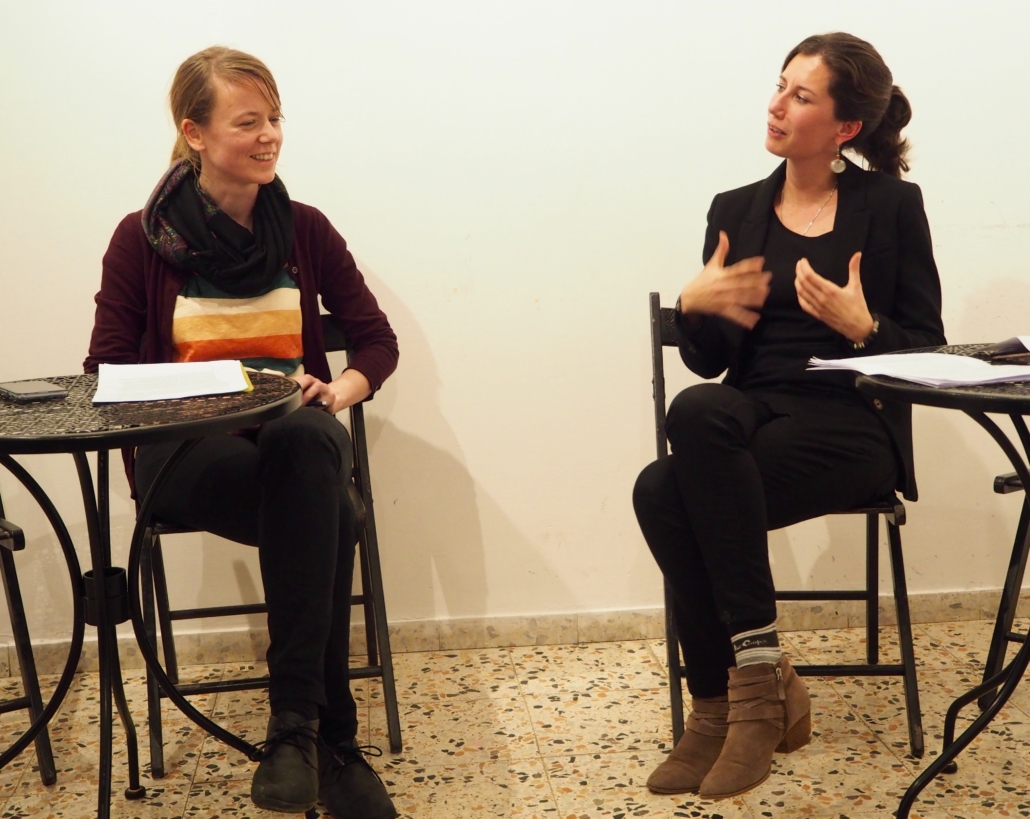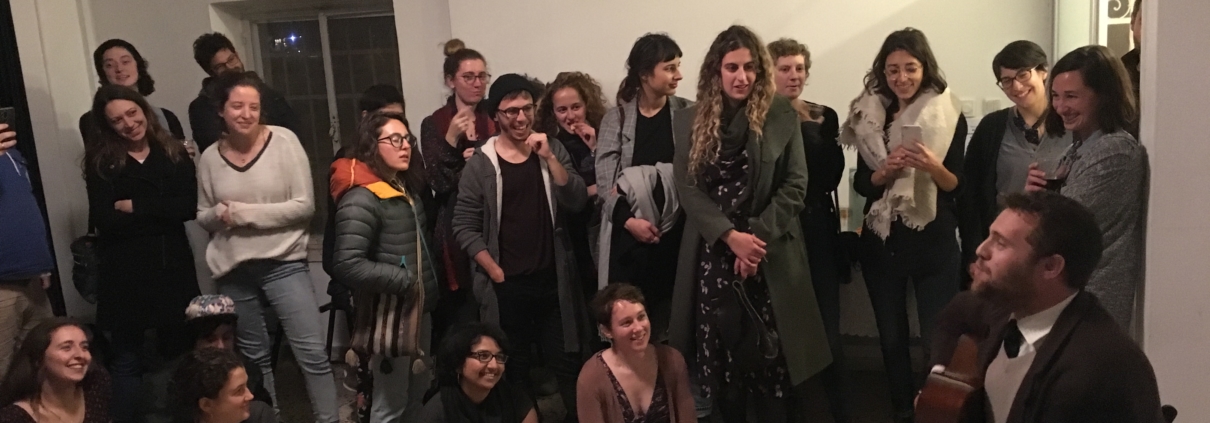Political Café: Can entrepreneurship be a means of empowerment for Bedouin women – May 2, 2019
On the 2nd of May, the Willy Brandt Center hosted a Political Café with Jamal Al Kirnawi, founder and executive director of „A New Dawn in the Negev“ and friends of Al Bustan community center, Jabal al Jahalin.
This evening was dedicated to the struggles of Bedouin women – a subject which is rarely discussed, even though Bedouin women play a key role in the conflict and in the peace building process.
The displacement and forced urbanization of Bedouin communities in the Negev/ Naqab and the West Bank have deprived Bedouin women of their traditional economic roles. Jamal offered us insights regarding his work with Bedouin women, and explained what structural challenges these women are facing in entering the labour market. Jamal mentioned that one major issue is the disparity in education, resulting from a weak educational infrastructure: fewer than 30% of Bedouin students earn a full high-school diploma, and when it comes to women students, the statistics are even lower.
Apart from that, Bedouin women face many other infrastructural problems. For example, when promoting their businesses on social media, these women must struggle to obtain a stable and affordable internet connection.
During the event we also fundraised for the Al Bustan community center, and sold embroidery made by the women of the Jahalin community – a project which has been supported by the Willy Brandt Center for several months. This event aimed to create an exchange between people who are working on similar projects and to build in Jerusalem a community that will support the Al Bustan Center.
Based on the work with Al Bustan, we know how important it is to see the Bedouin communities, their living conditions and the infrastructural problems with one’s own eyes. That’s why the WBC is organising a follow up event at the end of June: a tour to the Bedouin communities in the Naqab that will give the people of Jerusalem the chance to speak with these women themselves and learn about their businesses.

